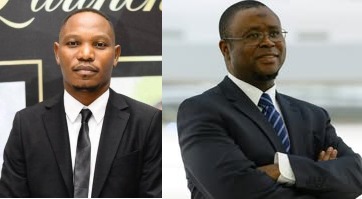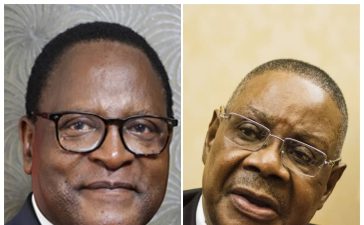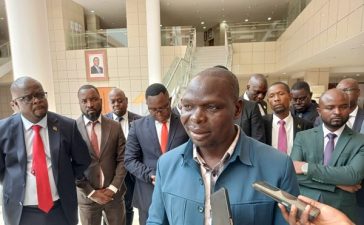BLANTYRE | Political Desk — The political arena in Malawi has not only seen heated campaign rallies but now burns with a fiery clash between two of the nation’s most followed social media commentators: Lyson Sibande and Onjezani Kenani. At the heart of this unfolding drama is none other than the aging figure of former President Arthur Peter Mutharika (APM)—whose recent speech at Mjamba has sparked both praise and scorn, depending on which commentator’s lens one chooses.
While Onjezani Kenani tried to breathe life into APM’s fading political flame, branding his address as “compelling” and “flawlessly delivered without notes,” many Malawians raised eyebrows—wondering whether Kenani was watching the same event as the rest of the nation. He waxed lyrical, comparing Mutharika’s rhetoric to America’s Declaration of Independence and describing his delivery as full of ease and clarity.
But Lyson Sibande, known for calling a spade a spade, would have none of it.
“Let us be fair and sincere,” Sibande began, slicing through Kenani’s narrative like a hot knife through butter. “That was the worst speech of APM’s entire career. It lacked coherence, flow, and basic organisation.”
Sibande accused Mutharika of showing clear signs of mental fatigue and detachment from the realities of the current political terrain. The former president allegedly fumbled with dates, forgot the election day, couldn’t recall the location of his own party’s manifesto launch, and regurgitated ideas from the 2019 manifesto instead of the 2025 document.
“He was not there to deliver a vision. He was dragged out to wave at the crowd, just to prove he’s still breathing,” Sibande fired, blunt and unrelenting.
While Kenani painted Mutharika as a statesman reconnecting with his legacy, Sibande pulled back the curtain and exposed what he described as a stage-managed act meant to mask APM’s frailty. “He’s not in control of the party. He doesn’t even know what’s happening in the DPP,” he argued.
In this clash of commentary titans, Sibande emerges not just as a critic, but as a truth-teller in a time of political theatre. His refusal to romanticize a clearly flawed performance demonstrates his commitment to honest discourse, while Kenani’s praise appears to many as flattering fiction, laced with political nostalgia rather than substance.
The Verdict?
Malawi is watching. The voters are listening. And as the country marches toward the September elections, one thing is clear: this is not the time for commentators who polish rust and call it gold. It’s the age of honesty, and Lyson Sibande has just thrown down the gauntlet.













